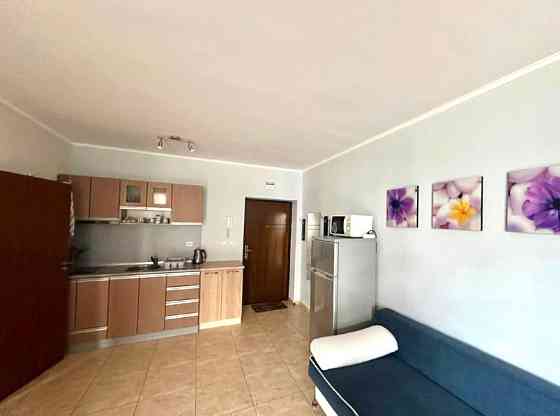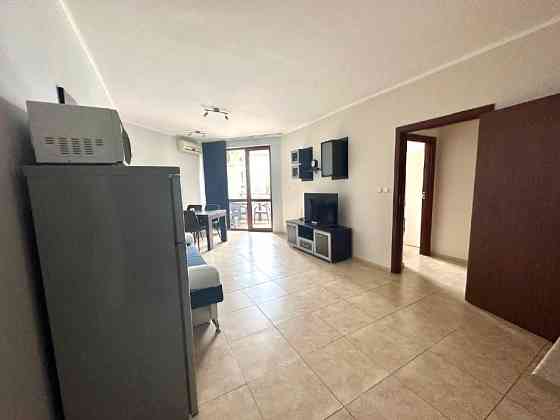
Tenant hotline in Berlin — a step in protecting tenants' rights
Berlin, the capital of Germany and one of the largest cities in Europe, is known for its diverse real estate market and large number of tenants. To help tenants with various rental-related issues, the city has launched a special hotline. This initiative was implemented by the Berlin Tenants' Rights Society (Berliner MieterGemeinschaft), which has been one of the leading tenant advisory organizations in the city for many years. The organization has more than 190,000 members and actively advocates for urban development without displacing residents.
The hotline is designed to provide tenants with fast and effective help in solving various housing issues. By calling the hotline, tenants can receive brief advice on topics such as:
- Concluding and terminating rental agreements
- Rent increases
- Problems with the condition of the housing
- Disputes with landlords
- Other issues related to renting housing
For more complex cases that require detailed consideration, hotline operators can refer tenants to one of the many advice centers located throughout Berlin.
The hotline offers tenants a number of important advantages:
- Accessibility — tenants can get help quickly and easily by simply calling the hotline.
- Expertise — hotline operators are qualified specialists in the field of housing law and have extensive experience in solving various tenant problems.
- Confidentiality — all calls to the hotline are handled with strict confidentiality, allowing tenants to feel comfortable discussing their problems.
- Free of charge — hotline consultations are provided free of charge to all tenants in Berlin.
Other support options for tenants in Berlin and Germany
In addition to the hotline, tenants in Berlin and other cities in Germany have a number of additional options to protect their rights and receive assistance with housing issues.
- Tenant protection organizations — most large cities in Germany have special tenant protection organizations (Mietervereine), which provide their members with a wide range of services, including legal advice on housing law, assistance in drafting letters and documents, representing tenants in disputes with landlords, and information on tenants' rights and obligations. Membership in these organizations requires an annual or monthly fee, the amount of which varies depending on the specific organization and region. For example, the Berlin Tenant Protection Organization has a standard monthly fee of €8.50, with a reduced rate of €5.50 for low-income tenants.
- Tenant legal insurance — special legal insurance (Mietrechtsschutzversicherung) covers the costs of legal services in the event of disputes with the landlord. The insurance can be taken out either separately or as part of a membership in a tenant protection organization. Having legal insurance gives tenants an important advantage in disputes with landlords, as it allows them to defend their rights in court without the risk of significant financial losses. The cost of insurance depends on the chosen tariff and the scope of coverage, but is usually between 50 and 200 euros per year.
- State and local authorities — tenants in Germany can also seek help from state and local authorities, such as:
- Housing offices (Wohnungsamt) — provide information and advice on housing law, and help in finding social housing.
- Rental services (Mieterschutzstelle) — help tenants in disputes with landlords and provide information on the rights and obligations of the parties.
- Courts — in cases of serious violations of tenants' rights or unresolvable disputes with landlords, tenants can go to court to protect their interests.
Install our app and get all the tools you need to search for real estate abroad in your smartphone! The mobile application will allow you to quickly access your personal account, manage your favorite properties and track your requests, directly exchange messages with sellers and buyers.

Features of renting housing in Germany
The rental market in Germany has a number of features that are important to know for both locals and foreigners planning to rent housing in this country.
There are several main types of rental housing in Germany:
- Apartments (Wohnungen — are the most common type of rental housing, including both individual apartments and rooms in shared apartments (WG — Wohngemeinschaft).
- Houses (Häuser) — are individual houses that can be rented out as a whole or by floor.
- Rooms (Zimmer) — are individual rooms in apartments or houses that can be rented out as independent housing or as part of a shared apartment.
- Social housing (Sozialwohnungen) — are apartments or houses provided by the state or municipality at reduced prices for low-income tenants.
Finding rental housing in Germany usually includes the following steps:
- Determining the search criteria — location, size, budget and other important parameters of the housing.
- Search for suitable options — via online platforms (Immobilienscout24, Immowelt, WG-Gesucht, etc.), newspapers, real estate agencies or personal contacts.
- Submitting a rental application — if interested in a specific option, the tenant submits an application, providing personal information and proof of income.
- Inspection of the property — before deciding to rent, the tenant usually inspects the property in person or virtually.
- Signing a rental agreement — if mutually agreed, the tenant and landlord sign a rental agreement, which specifies all the terms (rental period, rent, deposit, etc.).
Tenants in Germany have a number of important rights guaranteed by law:
- The right to live in the rented property for the agreed rental period.
- The right to have the landlord promptly eliminate any defects and maintain the property in proper condition.
- The right to protection against unjustified rent increases.
- The right to a refund of the deposit when moving out of the property (if it is in proper condition).
At the same time, tenants are obliged to:
- Pay rent and utility bills on time.
- Take good care of the rented property and notify the landlord of any repairs that are needed.
- Follow the rules of the building and do not violate the rights of other tenants.
- When leaving the property, return it to the condition in which it was received (with due regard to normal wear and tear).
To summarize:
- The tenant hotline in Berlin is an important step in protecting tenants' rights and providing them with support in resolving various housing issues. Along with other options such as membership in tenant protection organizations, legal insurance, and assistance from state and municipal authorities, this initiative contributes to a fairer and more stable rental market in the German capital.
- Understanding the specifics of renting in Germany, including types of housing, the search and rental process, and the rights and obligations of tenants, is a key factor in successfully resolving housing issues for anyone planning to rent in this country. Berlin, like many other cities in Germany, faces a number of challenges in the rental market, including a shortage of affordable housing, rising rents and cases of landlord abuse. In this context, initiatives like the tenant hotline are particularly important, as they help to protect tenants’ rights and contribute to a more balanced and sustainable housing market.
- The experience of Berlin and other German cities in supporting tenants can serve as an example for other countries and regions facing similar problems. The introduction of effective mechanisms to protect tenants’ rights, such as advice services, legal insurance and tenant advocacy organizations, can contribute to improving the rental market and improving the quality of life of people in many cities around the world.
Ultimately, ensuring access to high-quality and affordable housing is one of the key challenges of modern society. Initiatives like the tenant hotline in Berlin are an important step in this direction and deserve the attention and support of the state, public organizations and the citizens themselves.
 9
9
 6
6
 25.1
25.1  1
1  1
1  1
1  2
2  15
15
 18
18

Indonesia is a country of a thousand islands, vivid contrasts and amazing opportunities. In this article, we will analyze in detail all the pros and cons of living in Indonesia for expats and tourists. You will learn about the climate, culture, cost of living, as well as opportunities for work, business and education.

In 2025, the rental market in Germany is undergoing major changes. Tightening energy efficiency requirements, a reform of the social benefits system, the possible abolition of controversial fees and growing demand against a backdrop of limited supply are all creating a new reality for tenants and landlords. We look at the causes, consequences and prospects for these changes.

Albania is experiencing an unprecedented tourism boom that is not only attracting record numbers of foreign visitors, but also stimulating the rental market and generating significant revenue for the government. The increase in tourism is transforming the country’s economy and creating new opportunities for both locals and foreign investors.


























